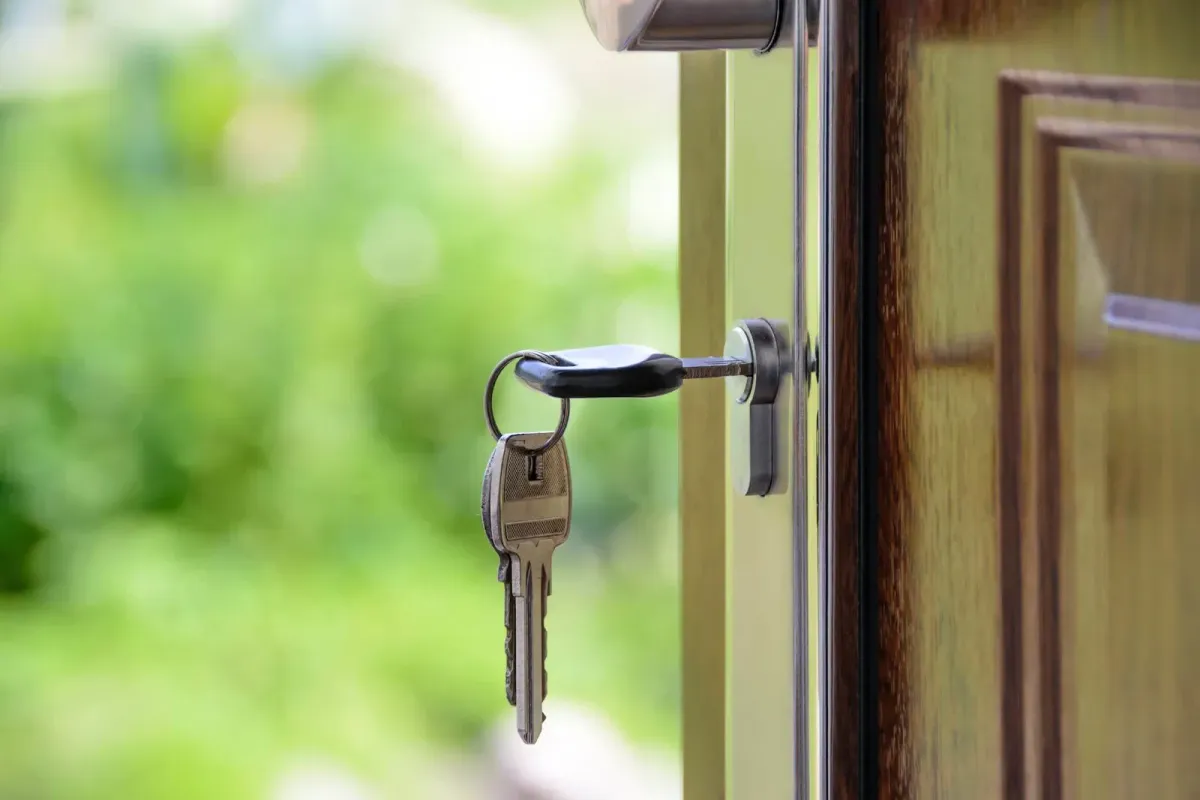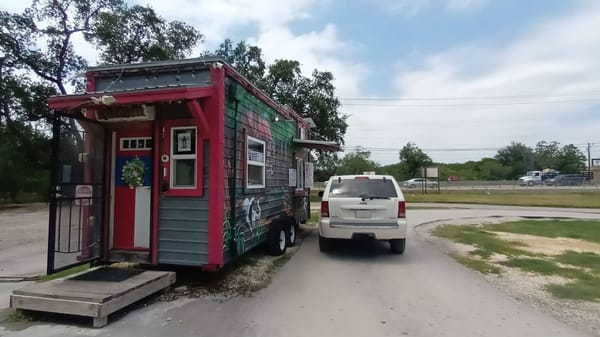Can a Renter Change The Locks? | Yes, Here's Why

As a property manager in the state of Texas, a frequent question that I've heard over the years is, "can a renter change the locks?", or "can the landlord change a tenants locks without notifying the landlord"?
The answer to this question varies state by state.
But let's see what Texas has to say about it.
Can a renter change the locks without notifying the landlord?
It's important to note that as of today, there is no specific law on the books in Texas that says tenant's cannot change locks prior to notifying the landlord.
So, in the state of Texas, the answer is yes, a tenant can change the lock in most cases, regardless of whether they have notified the landlord. That does not mean that the lease that the tenant signed does not have some verbiage that requires the tenant to notify the landlord prior to doing so.
ExpertTexan.com participates in affiliate programs. Any links provided in the text below may be affiliate links that we benefit from financially. Please use our links as they help us to be able to continue providing you with quality content – free of charge.
In Texas, if the renter changes the locks without notifying the landlord beforehand, the tenant is still required to provide the landlord with the keys to the rental immediately after changing the locks.

This is extremely important because the property belongs to the landlord, and they (or their property management team) are required to have access to the property at all times for inspections, maintenance purposes and emergency access.
Failure to provide the landlord with access to their own rental property could be grounds for eviction.
That being said, there are a dozen scenarios in which the answer to that question may vary, even in the state of Texas. To understand why, let's explore some key points as it relates to rental locks and whether or not landlords or tenants can change them with, or without, notifying the other.
A habitable rental home
First and foremost we need to understand the responsibility of the rental owner - the landlord. A rental property owner is required by law to provide a safe and habitable rental property in the state of Texas.

INVEST IN REAL ESTATE WITH JUST $10
You can earn money from a rental property without ever purchasing, renovating or dealing with a rental at all. I'm talking about GroundFloor. I personally use it and in the past 2 years of investing as little as $10 per deal, I've earned nearly 10% interest. That's substantially higher than any savings account I have access to, and I don't have to deal with the headaches that come along with managing a physical rental property. If you want to generate passive rental revenue without actually owning a rental property - check out GroundFloor!
Part of providing a safe and habitable rental home is making sure that nobody but the tenant, and the property manager (or landlord) have access to the rental property.
That includes providing the proper types of locks and security access to the rental property (Sec. 92.153. SECURITY DEVICES REQUIRED WITHOUT NECESSITY OF TENANT REQUEST).
A landlords responsibility for locks and tenant safety
Part of replacing the locks on a rental means ensuring that:
- The locks work,
- The keys provided to the renter provide access to all keyed entries (as detailed in the lease) on the rental property,
- And that nobody else has a key other than those individuals and/or entities detailed in the lease document.
Every time a tenant moves out, the lock is required to be changed by the landlord (Sec. 92.156. REKEYING OR CHANGE OF SECURITY DEVICES) before they find a new tenant and move them in, and a new, never-used-before key must be provided to the new tenant.
The property manager or landlord are permitted, by law, to retain a key for access to the rental property in the event of important property inspections, maintenance issues and/or emergency access.
That means the lock cannot be the same lock as a prior tenant had keys for.
When changing the rental lock may be necessary
There are times at which the landlord may need to replace the lock on the rental. Those reasons could include, but not be limited to:
- When the lock stops working.
- If the lock was changed by someone other than the landlord, and the landlord no longer has access.
- If the tenants keys were stolen (generally requires a police report to avoid being a tenant expense).
- If there has been a property-related security breach where the keys have gotten into the wrong hands somehow.
- In the event that the tenant is a victim of domestic violence, stalking, or any other crime committed under Texas state law.
Many of the reasons listed above may be reasons why a tenant may need to change the locks as well.
Keep in mind that the landlord will need to be provided with a key immediately after the locks are changed by the tenant, and the landlord may still change the locks yet again if the lock the tenant installed is not in compliance with the property and/or lease policies.
Depending on the circumstances and whether a specific Texas state law is applicable or not, the tenant may still be charged for the lock changes when permissible.
Can a renter change the locks without the owners permission?
Yes, in the state of Texas, tenants can change the locks without notifying the owners. However, they are required by law to provide the owner with keys to all new locks. Keep in mind that the rental property owner, or management team, may replace the lock again if it does not meet property or lease criteria.
This may, or may not be, at the tenant's expense, depending on the circumstances and the verbiage in the lease.
Can a landlord change the locks without notifying the tenant?
Yes, a landlord may change the locks without notifying the tenant if it's for emergency reasons, or as part of a repair. It must be done promptly and the tenant must be provided with keys to the rental immediately thereafter.
Failure to provide the keys to the tenant after changing the locks without notifying them could result in an "unlawful lockout" which can be quite costly to the landlord should the tenant choose to seek remedies as allowed by the law.
Sec. 92.009. RESIDENTIAL TENANT'S RIGHT OF REENTRY AFTER UNLAWFUL LOCKOUT
To avoid any potential costly legal fees, fines, and restitution owed to a tenant, it's always best to notify the lease holder beforehand of any lock changes unless it's absolutely unavoidable.
Can a landlord change the locks if the tenant has not paid rent?
Can a landlord change the locks if the renter has not paid rent...? Yes, and no.
So-called "Self Help Evictions" are illegal in the state of Texas.
However, in the state of Texas, a landlord can change the locks to the rental and "lockout" the tenant in the event that the tenant has not paid rent. That being said, there are very specific steps that the landlord must follow, and very specific criteria that must be met in order for the landlord to take drastic steps such as a tenant lockout.
Even after performing a "lockout" for unpaid rent, the landlord is still required to provide 24/7 access to the rental immediately as soon as requested by the tenant.
Meaning... a landlord can change the lock (assuming they followed all the rules as dictated in state law). But as soon as the renter asks for the key, the landlord has to give it to them. It doesn't matter if it's 1PM, or 3AM.
So it's a temporary inconvenience to the tenant.
It's also an inconvenience to the landlord conducting the lockout since the landlord is required to be available to provide access to the rental 24/7 after locking a tenant out.
All in all, it's rather risky for a landlord to perform tenant lockouts for unpaid rent in the state of Texas.
One misstep could be a very, very expensive misstep and the tenant may even be able to legally get out of their lease if the landlord fails to meet the criteria of the lockout, and/or fails to follow each of the steps as detailed by Texas law (Section 92.0081 of the Texas Property Code).
For tenants who have been locked out in the state of Texas due to unpaid rent, you have immediate remedies available under the law (What to Do When Your Landlord Locks You Out).
Rental lock options and alternatives
Every state requires that you change the locks when a tenant moves out, and prior to a new tenant moving in.
If you have a lot of rentals, that could start to get a little pricey, not to mention, a little annoying. Here are a few convenient options that you may not have considered when it comes to replacing the locks on your rental property, along with the benefits of each:
Smart locks for rental properties
The easiest way for any landlord to change the locks on a rental is to simply use a state-of-the-art smart lock that can be managed from a smartphone app, laptop or desktop that's connected to the internet.
Within a few seconds you've disabled the previous lock, and set it up with a brand new one.
This is also helpful if you live in a state like Texas that allows lockouts for unpaid rent - you can change the lock back at any time of the day (since you're required to be available 24/7 to do so) to give the tenant access without ever having to physically be present.
A KwikSet lock for your rental
If you're ok with having to be physically present when changing the lock, then a KwikSet lock may work for you. Instead of having to take the actual lock out of the door and re-pin it, instead, you simply insert a small "key" into a pinhole, and then reset it with a new key.
The lock automatically re-pins during this process. In a matter of seconds, you've rekeyed the lock to a brand new key.




